Company Details
unitedhealth-group
100,868
1,581,678
62
unitedhealthgroup.com
12338
UNI_1763329
Completed
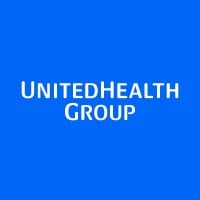
UnitedHealth Group Company CyberSecurity Posture
unitedhealthgroup.comUnitedHealth Group is a health care and well-being company with a mission to help people live healthier lives and help make the health system work better for everyone. We are 340,000 colleagues in two distinct and complementary businesses working to help build a modern, high-performing health system through improved access, affordability, outcomes and experiences. Optum delivers care aided by technology and data, empowering people, partners and providers with the guidance and tools they need to achieve better health. UnitedHealthcare offers a full range of health benefits, enabling affordable coverage, simplifying the health care experience and delivering access to high-quality care. We work with governments, employers, partners and providers to care for 147 million people and share a vision of a value-based system of care that provides compassionate and equitable care. At UnitedHealth Group, our mission calls us, our values guide us and our diverse culture connects us as we seek to improve care for the consumers we are privileged to serve and their communities. Click below to search careers or join our social communities: • Search & apply for careers at careers.unitedhealthgroup.com/ • Follow us on Twitter at twitter.com/UnitedHealthGrp • Follow and like us on Facebook at facebook.com/unitedhealthgroup • Follow us on Instagram at instagram.com/unitedhealthgroup More about UnitedHealth Group can be found at unitedhealthgroup.com/
Company Details
unitedhealth-group
100,868
1,581,678
62
unitedhealthgroup.com
12338
UNI_1763329
Completed
Between 0 and 549

 UnitedHealth Group Global Score (TPRM)
UnitedHealth Group Global Score (TPRM)XXXX

Description: The California Office of the Attorney General reported a data breach incident involving OptumRx on April 8, 2016. The breach occurred on March 16, 2016, when an unencrypted laptop belonging to a vendor was stolen in Indianapolis, Indiana, potentially exposing names, addresses, health plan information, prescription drug details, and in some cases, dates of birth. Approximately UNKN individuals were affected, and no financial information was compromised.
Description: The Optum incident exemplifies the risks of consolidating healthcare systems, where a cyberattack paralyzed medical billing and authorization services, resulting in patients experiencing delays in medical procedures and lack of access to prescription medications. Medical service providers could not bill insurance, leading to financial strain, missed salary payments, and some cases of severe financial difficulties. With a single point of failure due to consolidated services, a large portion of health systems and patient care became vulnerable to cyber threats.
Description: The California Office of the Attorney General reported a data breach involving UnitedHealth Group on March 30, 2012. The breach occurred from June 28, 2011 to December 12, 2011, potentially affecting personal information such as names, Social Security Numbers, and Medicare Healthcare Insurance Numbers, although the total number of individuals affected is unknown.
Description: UnitedHealth Group, a health insurance company, reported significant financial implications due to the Change Healthcare cyberattack, with estimated costs between $2.3 and $2.45 billion for 2024. This cyberattack has not only led to direct response costs but also necessitated substantial financial support for healthcare providers. Despite the breach, UnitedHealth managed revenue growth, signaling resilience amidst the cyber incident.
Description: UnitedHealth Group Inc. experienced a substantial cybersecurity breach at its Change Healthcare unit, leading to significant financial repercussions. The breach resulted in immediate response costs and broader business disruption, totaling approximately $872 million in the first quarter, with projections of the total pre-tax cost reaching between $1.35 billion and $1.6 billion. Additionally, UnitedHealth is allocating $800 million as claims reserves, to address potential claims from providers due to interrupted services since the breach was reported on February 21. The breach has affected both the network security of Change Healthcare and the continuity of services to providers and partners.
Description: UnitedHealth Group, parent company of Change Healthcare, reported a cyber-attack affecting 190 million individuals, an increase of 90 million from initial reports. As one of the largest healthcare payment processors, this incident is the most severe healthcare data breach of 2024. The breach, perpetrated by ransomware group ALPHV/Blackcat, led to substantial financial consequences with costs reaching $3.1 billion, according to the company's financial results. This breach has not only compromised the personal information of millions but also resulted in multiple lawsuits against UnitedHealth Group.
Description: In late February, UnitedHealth Group's subsidiary Change Healthcare suffered a notable cyber incident, causing considerable disruptions within the healthcare system. This breach has impeded healthcare operations nationwide, most critically affecting the ability to submit claims and receive payments. The incident has drawn significant concern from various stakeholders within the healthcare community, raising cash flow issues among hospitals, doctors, pharmacies, and others. To mitigate the impact, the Centers for Medicare & Medicaid Services (CMS) have enacted several immediate measures to assist providers and ensure continued service to patients. The incident emphasizes the critical need for enhanced cybersecurity resilience throughout the healthcare ecosystem and has prompted the Department of Health and Human Services (HHS) to actively engage with federal bodies to provide threat intelligence to the industry and ensure a transparent, effective response to the cyberattack.
Description: UnitedHealth Group faced a cyberattack on Change Healthcare, resulting in substantial financial repercussions projected to cost between $2.3 to $2.45 billion in 2024. This estimate is significantly higher than previous estimates, reflecting increased direct response expenses, financial support initiatives for care providers, and expenses related to consumer notification. Despite the impact of the cyberattack, UnitedHealth's revenue grew to $98.9 billion, indicating resilience in their operational performance.
Description: The Change Healthcare cyber-attack, acknowledged by parent company UnitedHealth Group, affected approximately 190 million individuals, marking a substantial increase from earlier reports. As one of the largest healthcare payment processing entities in the U.S., Change Healthcare's security breach, with losses totaling $3.1 billion, is considered the most severe healthcare data breach recorded in 2024. Behind this damaging cybersecurity incident is the ALPHV/Blackcat ransomware group, leading to multiple lawsuits against UnitedHealth Group.
Description: UnitedHealth Group, a Minnesota-based health insurance company, reported substantial financial implications due to the Change Healthcare cyberattack, with estimated costs between $2.3 billion to $2.45 billion for 2024. This figure significantly exceeds earlier estimates by over $1 billion. While UnitedHealth has restored most services and provided considerable financial aid to healthcare providers, the cyberattack's repercussions include increased direct response costs and support initiatives, contributing to an adjusted per share impact of $1.90 to $2.05 for the year.
Description: United Health Group encountered severe financial and operational disruptions due to the cyberattack on its subsidiary, Change Healthcare. The attack impaired medical billing and pre-authorization services, causing healthcare procedures to be delayed and prescriptions to be inaccessible. This led to delayed income for healthcare systems, impacting their ability to pay staff and potentially forcing some into financial turmoil. The resultant lack of care and delayed procedures may have affected patient health outcomes.
Description: UnitedHealth Group’s subsidiary **Change Healthcare** suffered a **massive cyberattack** in February 2024, attributed to the **Blackcat (ALPHV) ransomware group**. The attack crippled critical systems, disrupting **billing, claims processing, and prescription services** across the U.S. healthcare sector. Hospitals, pharmacies, and providers faced **payment processing outages**, delaying patient care and financial transactions. The breach also exposed **sensitive patient data**, including medical records and personally identifiable information (PII), though the full scope of data theft remains under investigation. UnitedHealth was forced to **isolate affected systems**, leading to prolonged operational disruptions. The incident triggered **federal investigations**, with the U.S. Department of Health and Human Services (HHS) and the FBI involved. The financial and reputational damage was severe, with **stock drops** and **lawsuits** from affected parties. The attack underscored vulnerabilities in healthcare IT infrastructure, raising concerns about **future ransomware threats** to critical services.
Description: The ransomware attack on Change Healthcare, a component of UnitedHealth Group, reported on February 21, has been notably disruptive within the healthcare industry. This cyberattack is projected to result in financial damages approximating $1.6 billion. The incident has caused considerable perturbation amid providers contending with its extensive repercussions. Recovery efforts are hampered by the lack of clear communication from United Health and Change Healthcare, as providers await definitive instructions from the OCR regarding their reporting duties under HIPAA for this breach.
Description: UnitedHealth Group, the parent company of Change Healthcare, was affected by a ransomware attack that resulted in substantial operational disruption across the healthcare sector. Costs associated with the breach are projected to reach $1.6 billion. This breach compelled healthcare organizations to seek clarifications on their reporting obligations under HIPAA. While the extent of the compromised personal health information (PHI) is still being assessed, the situation highlights the complex challenges involved in managing and securing sensitive healthcare information in the digital age, alongside navigating the intricacies of legal and regulatory compliance.
Description: UnitedHealth faced a significant ransomware attack where its subsidiary, Change Healthcare, was compromised. The attack disrupted pharmacy operations, leading to chaos and a desperate need to fill prescriptions. UnitedHealth ultimately paid $22 million in bitcoin to the ALPHV/BlackCat gang to restore services quickly.
Description: UnitedHealth Group experienced a ransomware attack on February 21, which disrupted their services including medical claim handling and revenue cycle services. This resulted in severe delays in processing claims, pushing healthcare providers towards financial distress, with some nearly facing bankruptcy. The attack by the group BlackCat forced UnitedHealth to rebuild services and affected providers have started filing lawsuits due to not maintaining adequate cybersecurity measures, with allegations of sensitive information leaks. UnitedHealth has paid over $2 billion to affected providers and the data compromised in the attack remains undisclosed.
Description: The California Office of the Attorney General reported that UnitedHealthcare experienced a data breach affecting individuals' health information. The breach was detected on December 29, 2022, and it involved unauthorized access to the UHC broker portal, affecting information from December 1, 2022, to January 25, 2023. The breach potentially exposed first and last names, member ID numbers, plan effective dates, and other plan-related information, but not Social Security numbers or financial account information.
Description: On January 28, 2013, the California Office of the Attorney General reported a data breach involving RR Donnelley, which included the theft of an unencrypted computer containing personal information of UnitedHealthcare members. The specific date of the breach is unknown, but it occurred sometime between the second half of September and the end of November 2012. The information potentially compromised includes names, addresses, and Social Security numbers, and approximately 2003 health benefit plan members were affected.
Description: The CEO of UnitedHealthcare, Brian Thompson, was tragically shot and killed in New York City. The suspected shooter, Luigi Mangione, was arrested shortly thereafter. Police found evidence suggesting motivations related to healthcare system criticisms. Bullet casings at the scene had words inscribed that imply dissatisfaction with health insurance coverage processes. Authorities also found a manifesto carried by Mangione that condemned healthcare companies for prioritizing profits over care. This event has led to a significant impact on UnitedHealthcare’s reputation, with potential financial implications due to the loss of its CEO and the adverse publicity surrounding the circumstances of his death.
Description: The company experienced a data breach after filing official documents with the Attorney General of Texas. The breach resulted in the names, addresses, health insurance information, and medical information being compromised. Leaked healthcare data was indeed protected healthcare information. They had sufficient information about a patient to carry out healthcare identity fraud.
Description: The CEO of UnitedHealthcare, Brian Thompson, was fatally shot in an incident involving Luigi Mangione, who was arrested in Pennsylvania. The shooter allegedly left behind bullet casings with words indicating a protest against healthcare insurance claim denials. The perpetrator carried a manifesto critical of healthcare companies' focus on profits over patient care. The case has drawn significant media attention, impacting the company’s reputation and possibly causing a financial setback due to concerns over the safety of its executives, potential legal issues, and the necessity for increased security measures.
Description: The Washington State Office of the Attorney General reported a data breach involving UnitedHealthcare on August 25, 2023. The breach, which was a ransomware attack discovered on April 17, 2023, affected approximately 1,025 Washington residents and involved compromised information including names, Social Security numbers, dates of birth, health insurance information, and medical information.


UnitedHealth Group has 166.67% more incidents than the average of same-industry companies with at least one recorded incident.
UnitedHealth Group has 212.5% more incidents than the average of all companies with at least one recorded incident.
UnitedHealth Group reported 2 incidents this year: 0 cyber attacks, 2 ransomware, 0 vulnerabilities, 0 data breaches, compared to industry peers with at least 1 incident.
UnitedHealth Group cyber incidents detection timeline including parent company and subsidiaries

UnitedHealth Group is a health care and well-being company with a mission to help people live healthier lives and help make the health system work better for everyone. We are 340,000 colleagues in two distinct and complementary businesses working to help build a modern, high-performing health system through improved access, affordability, outcomes and experiences. Optum delivers care aided by technology and data, empowering people, partners and providers with the guidance and tools they need to achieve better health. UnitedHealthcare offers a full range of health benefits, enabling affordable coverage, simplifying the health care experience and delivering access to high-quality care. We work with governments, employers, partners and providers to care for 147 million people and share a vision of a value-based system of care that provides compassionate and equitable care. At UnitedHealth Group, our mission calls us, our values guide us and our diverse culture connects us as we seek to improve care for the consumers we are privileged to serve and their communities. Click below to search careers or join our social communities: • Search & apply for careers at careers.unitedhealthgroup.com/ • Follow us on Twitter at twitter.com/UnitedHealthGrp • Follow and like us on Facebook at facebook.com/unitedhealthgroup • Follow us on Instagram at instagram.com/unitedhealthgroup More about UnitedHealth Group can be found at unitedhealthgroup.com/


Atrium Health, part of Advocate Health, is redefining how, when and where care is delivered. We are rethinking methods of care delivery to reach more people and bringing human kindness to every step of their health journey. Our dedication to elevating health care for every individual, every teammate

Nationwide Children’s is one of America's largest pediatric hospitals, an international leader in research and is ranked in all 10 specialties on U.S. News & World Report’s 2025-26 “America’s Best Children’s Hospitals” list. Our staff, comprised of 1,600 medical professionals and over 16,000 employe
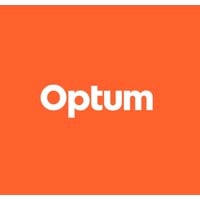
We’re evolving health care so everyone can have the opportunity to live their healthiest life. It’s why we put your unique needs at the heart of everything we do, making it easy and affordable to manage health and well-being. We are delivering the right care how and when it’s needed; providing suppo
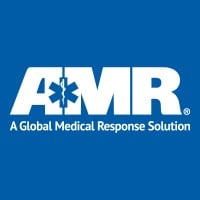
American Medical Response, America’s leading provider of medical transportation, has a single mission: making a difference by caring for people in need. AMR solutions include 911 emergency, interfacility transportation, event medical, advanced & basic life support transports and federal disaster res

At Amsterdam UMC, more than 15,000 professionals strive to provide good and accessible care. For the generations of today and tomorrow. The two medical university centers in Amsterdam, AMC and VUmc, are working together towards a future in which we prevent illnesses and make the best treatment avail
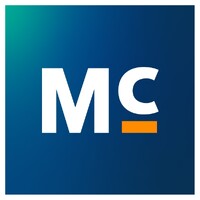
Welcome to the official LinkedIn page for McKesson Corporation. We're an impact-driven healthcare organization dedicated to “Advancing Health Outcomes For All.” As a global healthcare company, we touch virtually every aspect of health. Our leaders empower our people to lead with a growth mindset an

O Ministério da Saúde é o órgão do Poder Executivo Federal responsável pela organização e elaboração de planos e políticas públicas voltados para a promoção, a prevenção e a assistência à saúde dos brasileiros. É função do Ministério dispor de condições para a proteção e recuperação da saúde da pop

ABOUT THE UNIVERSITY OF TEXAS MEDICAL BRANCH: Texas' first academic health center opened its doors in 1891 and today has four campuses, five health sciences schools, six institutes for advanced study, a research enterprise that includes one of only two national laboratories dedicated to the safe stu
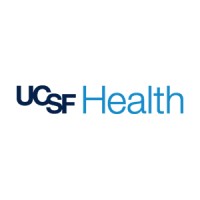
UCSF Health is an integrated health care network encompassing several entities, including UCSF Medical Center, one of the nation’s top 10 hospitals according to U.S. News & World Report, and UCSF Benioff Children’s Hospitals, with campuses in Oakland and San Francisco. We are recognized throughout t
.png)
UnitedHealth Group (NYSE: UNH), a dominant force in the U.S. healthcare landscape, is currently embroiled in an unprecedented storm of...
UnitedHealth Group (NYSE: UNH), a titan in the U.S. healthcare industry, is grappling with a formidable array of financial and operational...
Two Democratic senators are demanding information from UnitedHealth Group about the emergency relief loans it provided to healthcare...
Two U.S. senators have written to UnitedHealth Group (UHG) CEO Stephen J. Hemsley demanding answers about cybersecurity and the response to...
When you've been the victim of the largest health data breach in U.S. history, and you've been under intense public and regulatory scrutiny...
The latest Episource breach, they said, raises questions about the company's commitment to securing personal health information. The senators...
UnitedHealth Group has been urged by Sens. Bill Cassidy, R-La., and Maggie Hassan, D-N.H., to provide more details regarding the January...
Sens. Bill Cassidy and Maggie Hassan sent a letter to UnitedHealth, the owner of medical tech company Episource, demanding more information...
Develop your skills alongside leaders with a global organization that values your growth and encourages you to improve the health care landscape.

Explore insights on cybersecurity incidents, risk posture, and Rankiteo's assessments.
The official website of UnitedHealth Group is https://www.unitedhealthgroup.com/.
According to Rankiteo, UnitedHealth Group’s AI-generated cybersecurity score is 110, reflecting their Critical security posture.
According to Rankiteo, UnitedHealth Group currently holds 0 security badges, indicating that no recognized compliance certifications are currently verified for the organization.
According to Rankiteo, UnitedHealth Group is not certified under SOC 2 Type 1.
According to Rankiteo, UnitedHealth Group does not hold a SOC 2 Type 2 certification.
According to Rankiteo, UnitedHealth Group is not listed as GDPR compliant.
According to Rankiteo, UnitedHealth Group does not currently maintain PCI DSS compliance.
According to Rankiteo, UnitedHealth Group is not compliant with HIPAA regulations.
According to Rankiteo,UnitedHealth Group is not certified under ISO 27001, indicating the absence of a formally recognized information security management framework.
UnitedHealth Group operates primarily in the Hospitals and Health Care industry.
UnitedHealth Group employs approximately 100,868 people worldwide.
UnitedHealth Group presently has no subsidiaries across any sectors.
UnitedHealth Group’s official LinkedIn profile has approximately 1,581,678 followers.
UnitedHealth Group is classified under the NAICS code 62, which corresponds to Health Care and Social Assistance.
No, UnitedHealth Group does not have a profile on Crunchbase.
Yes, UnitedHealth Group maintains an official LinkedIn profile, which is actively utilized for branding and talent engagement, which can be accessed here: https://www.linkedin.com/company/unitedhealth-group.
As of November 27, 2025, Rankiteo reports that UnitedHealth Group has experienced 22 cybersecurity incidents.
UnitedHealth Group has an estimated 29,962 peer or competitor companies worldwide.
Incident Types: The types of cybersecurity incidents that have occurred include Breach, Ransomware and Cyber Attack.
Total Financial Loss: The total financial loss from these incidents is estimated to be $27.87 billion.
Detection and Response: The company detects and responds to cybersecurity incidents through an third party assistance with centers for medicare & medicaid services (cms), third party assistance with department of health and human services (hhs), and law enforcement notified with yes, and law enforcement notified with yes, and and remediation measures with wipe systems clean, remediation measures with restore from backups, remediation measures with thoroughly check for remaining threats..
Title: Data Breach of Healthcare Information
Description: The company experienced a data breach after filing official documents with the Attorney General of Texas. The breach resulted in the names, addresses, health insurance information, and medical information being compromised. Leaked healthcare data was indeed protected healthcare information. They had sufficient information about a patient to carry out healthcare identity fraud.
Type: Data Breach
Title: Cyber Incident at Change Healthcare
Description: In late February, UnitedHealth Group's subsidiary Change Healthcare suffered a notable cyber incident, causing considerable disruptions within the healthcare system. This breach has impeded healthcare operations nationwide, most critically affecting the ability to submit claims and receive payments. The incident has drawn significant concern from various stakeholders within the healthcare community, raising cash flow issues among hospitals, doctors, pharmacies, and others. To mitigate the impact, the Centers for Medicare & Medicaid Services (CMS) have enacted several immediate measures to assist providers and ensure continued service to patients. The incident emphasizes the critical need for enhanced cybersecurity resilience throughout the healthcare ecosystem and has prompted the Department of Health and Human Services (HHS) to actively engage with federal bodies to provide threat intelligence to the industry and ensure a transparent, effective response to the cyberattack.
Date Detected: Late February
Type: Cyber Incident
Title: Cybersecurity Breach at Change Healthcare Unit of UnitedHealth Group Inc.
Description: UnitedHealth Group Inc. experienced a substantial cybersecurity breach at its Change Healthcare unit, leading to significant financial repercussions. The breach resulted in immediate response costs and broader business disruption, totaling approximately $872 million in the first quarter, with projections of the total pre-tax cost reaching between $1.35 billion and $1.6 billion. Additionally, UnitedHealth is allocating $800 million as claims reserves, to address potential claims from providers due to interrupted services since the breach was reported on February 21. The breach has affected both the network security of Change Healthcare and the continuity of services to providers and partners.
Date Detected: 2023-02-21
Type: Cybersecurity Breach
Title: UnitedHealth Group Ransomware Attack
Description: UnitedHealth Group experienced a ransomware attack on February 21, which disrupted their services including medical claim handling and revenue cycle services. This resulted in severe delays in processing claims, pushing healthcare providers towards financial distress, with some nearly facing bankruptcy. The attack by the group BlackCat forced UnitedHealth to rebuild services and affected providers have started filing lawsuits due to not maintaining adequate cybersecurity measures, with allegations of sensitive information leaks. UnitedHealth has paid over $2 billion to affected providers and the data compromised in the attack remains undisclosed.
Date Detected: 2023-02-21
Type: Ransomware
Attack Vector: Ransomware
Threat Actor: BlackCat
Motivation: Financial Gain
Title: Change Healthcare Cyberattack Impact on UnitedHealth Group
Description: UnitedHealth Group, a Minnesota-based health insurance company, reported substantial financial implications due to the Change Healthcare cyberattack, with estimated costs between $2.3 billion to $2.45 billion for 2024. This figure significantly exceeds earlier estimates by over $1 billion. While UnitedHealth has restored most services and provided considerable financial aid to healthcare providers, the cyberattack's repercussions include increased direct response costs and support initiatives, contributing to an adjusted per share impact of $1.90 to $2.05 for the year.
Type: Cyberattack
Title: Change Healthcare Cyberattack on UnitedHealth Group
Description: UnitedHealth Group, a health insurance company, reported significant financial implications due to the Change Healthcare cyberattack, with estimated costs between $2.3 and $2.45 billion for 2024. This cyberattack has not only led to direct response costs but also necessitated substantial financial support for healthcare providers. Despite the breach, UnitedHealth managed revenue growth, signaling resilience amidst the cyber incident.
Type: Cyberattack
Title: Cyberattack on Change Healthcare
Description: United Health Group encountered severe financial and operational disruptions due to the cyberattack on its subsidiary, Change Healthcare. The attack impaired medical billing and pre-authorization services, causing healthcare procedures to be delayed and prescriptions to be inaccessible. This led to delayed income for healthcare systems, impacting their ability to pay staff and potentially forcing some into financial turmoil. The resultant lack of care and delayed procedures may have affected patient health outcomes.
Type: Cyberattack
Title: Optum Cyber Incident
Description: The Optum incident exemplifies the risks of consolidating healthcare systems, where a cyberattack paralyzed medical billing and authorization services, resulting in patients experiencing delays in medical procedures and lack of access to prescription medications. Medical service providers could not bill insurance, leading to financial strain, missed salary payments, and some cases of severe financial difficulties. With a single point of failure due to consolidated services, a large portion of health systems and patient care became vulnerable to cyber threats.
Type: Ransomware
Title: Assassination of UnitedHealthcare CEO Brian Thompson
Description: The CEO of UnitedHealthcare, Brian Thompson, was tragically shot and killed in New York City. The suspected shooter, Luigi Mangione, was arrested shortly thereafter. Police found evidence suggesting motivations related to healthcare system criticisms. Bullet casings at the scene had words inscribed that imply dissatisfaction with health insurance coverage processes. Authorities also found a manifesto carried by Mangione that condemned healthcare companies for prioritizing profits over care. This event has led to a significant impact on UnitedHealthcare’s reputation, with potential financial implications due to the loss of its CEO and the adverse publicity surrounding the circumstances of his death.
Type: Physical Security Incident
Attack Vector: Physical Assault
Threat Actor: Luigi Mangione
Motivation: Criticism of healthcare systemDissatisfaction with health insurance coverage processes
Title: Fatal Shooting of UnitedHealthcare CEO
Description: The CEO of UnitedHealthcare, Brian Thompson, was fatally shot in an incident involving Luigi Mangione, who was arrested in Pennsylvania. The shooter allegedly left behind bullet casings with words indicating a protest against healthcare insurance claim denials. The perpetrator carried a manifesto critical of healthcare companies' focus on profits over patient care. The case has drawn significant media attention, impacting the company’s reputation and possibly causing a financial setback due to concerns over the safety of its executives, potential legal issues, and the necessity for increased security measures.
Type: Physical Security Incident
Attack Vector: Physical Violence
Threat Actor: Luigi Mangione
Motivation: Protest against healthcare insurance claim denialsCriticism of healthcare companies' focus on profits over patient care
Title: UnitedHealth Group Cyber-Attack
Description: UnitedHealth Group, parent company of Change Healthcare, reported a cyber-attack affecting 190 million individuals, an increase of 90 million from initial reports. As one of the largest healthcare payment processors, this incident is the most severe healthcare data breach of 2024. The breach, perpetrated by ransomware group ALPHV/Blackcat, led to substantial financial consequences with costs reaching $3.1 billion, according to the company's financial results. This breach has not only compromised the personal information of millions but also resulted in multiple lawsuits against UnitedHealth Group.
Type: Data Breach, Ransomware
Threat Actor: ALPHV/Blackcat
Title: Ransomware Attack on UnitedHealth Group and Change Healthcare
Description: UnitedHealth Group, the parent company of Change Healthcare, was affected by a ransomware attack that resulted in substantial operational disruption across the healthcare sector. Costs associated with the breach are projected to reach $1.6 billion. This breach compelled healthcare organizations to seek clarifications on their reporting obligations under HIPAA. While the extent of the compromised personal health information (PHI) is still being assessed, the situation highlights the complex challenges involved in managing and securing sensitive healthcare information in the digital age, alongside navigating the intricacies of legal and regulatory compliance.
Type: Ransomware
Title: Change Healthcare Cyber-Attack
Description: The Change Healthcare cyber-attack, acknowledged by parent company UnitedHealth Group, affected approximately 190 million individuals, marking a substantial increase from earlier reports. As one of the largest healthcare payment processing entities in the U.S., Change Healthcare's security breach, with losses totaling $3.1 billion, is considered the most severe healthcare data breach recorded in 2024. Behind this damaging cybersecurity incident is the ALPHV/Blackcat ransomware group, leading to multiple lawsuits against UnitedHealth Group.
Type: Ransomware
Threat Actor: ALPHV/Blackcat ransomware group
Title: Cyberattack on Change Healthcare
Description: UnitedHealth Group faced a cyberattack on Change Healthcare, resulting in substantial financial repercussions projected to cost between $2.3 to $2.45 billion in 2024. This estimate is significantly higher than previous estimates, reflecting increased direct response expenses, financial support initiatives for care providers, and expenses related to consumer notification. Despite the impact of the cyberattack, UnitedHealth's revenue grew to $98.9 billion, indicating resilience in their operational performance.
Type: Cyberattack
Title: Ransomware Attack on Change Healthcare
Description: The ransomware attack on Change Healthcare, a component of UnitedHealth Group, reported on February 21, has been notably disruptive within the healthcare industry. This cyberattack is projected to result in financial damages approximating $1.6 billion. The incident has caused considerable perturbation amid providers contending with its extensive repercussions. Recovery efforts are hampered by the lack of clear communication from United Health and Change Healthcare, as providers await definitive instructions from the OCR regarding their reporting duties under HIPAA for this breach.
Date Detected: 2023-02-21
Type: Ransomware
Title: Ransomware Incident Analysis
Description: Computer screens all over your org are flashing up a warning that you've been infected by ransomware, or you've got a message that someone's been stealing information from your server. There's a growing market of firms that advise extortion victims on how to handle the situation, but that just adds another invoice to the injury, and some still prefer to go it alone. In the end, while a few companies do ignore ransom demands outright, all at least assess their options before deciding whether to negotiate, restore from backups, or pay up.
Type: Ransomware
Threat Actor: ALPHV/BlackCat gangLockBit
Motivation: Financial Gain
Title: UnitedHealthcare Data Breach
Description: Unauthorized access to the UHC broker portal, potentially exposing personal and plan-related information.
Date Detected: 2022-12-29
Type: Data Breach
Attack Vector: Unauthorized Access
Title: OptumRx Data Breach
Description: A data breach incident involving OptumRx where an unencrypted laptop belonging to a vendor was stolen, potentially exposing personal and health information.
Date Detected: 2016-03-16
Date Publicly Disclosed: 2016-04-08
Type: Data Breach
Attack Vector: Physical Theft
Vulnerability Exploited: Unencrypted Laptop
Threat Actor: Unknown
Motivation: Unknown
Title: RR Donnelley Data Breach
Description: Theft of an unencrypted computer containing personal information of UnitedHealthcare members.
Date Detected: 2013-01-28
Date Publicly Disclosed: 2013-01-28
Type: Data Breach
Attack Vector: Theft of Physical Device
Vulnerability Exploited: Unencrypted Data
Title: UnitedHealth Group Data Breach
Description: The California Office of the Attorney General reported a data breach involving UnitedHealth Group on March 30, 2012. The breach occurred from June 28, 2011 to December 12, 2011, potentially affecting personal information such as names, Social Security Numbers, and Medicare Healthcare Insurance Numbers, although the total number of individuals affected is unknown.
Date Detected: 2012-03-30
Date Publicly Disclosed: 2012-03-30
Type: Data Breach
Title: UnitedHealthcare Data Breach
Description: The Washington State Office of the Attorney General reported a data breach involving UnitedHealthcare on August 25, 2023. The breach, which was a ransomware attack discovered on April 17, 2023, affected approximately 1,025 Washington residents and involved compromised information including names, Social Security numbers, dates of birth, health insurance information, and medical information.
Date Detected: 2023-04-17
Date Publicly Disclosed: 2023-08-25
Type: Data Breach
Attack Vector: Ransomware
Title: Cyberattack on Indian Council of Medical Research (ICMR) Leads to Data Breach of 81.5 Crore Citizens
Description: A cyberattack on the Indian Council of Medical Research (ICMR) resulted in a massive data breach exposing sensitive personal and medical information of approximately 81.5 crore (815 million) Indian citizens. The breach, attributed to a threat actor known as 'pwn0001,' involved the sale of the stolen data on the dark web for $80,000. The compromised data includes Aadhaar and passport details, names, phone numbers, and addresses, raising significant concerns over identity theft and fraud. The ICMR has not yet publicly confirmed the breach, and the extent of the impact remains under investigation.
Type: data breach
Threat Actor: pwn0001
Motivation: financial gaindata theft
Common Attack Types: The most common types of attacks the company has faced is Ransomware.
Identification of Attack Vectors: The company identifies the attack vectors used in incidents through UHC broker portal.

Data Compromised: Names, Addresses, Health insurance information, Medical information
Identity Theft Risk: True

Systems Affected: Claim submission and payment systems
Operational Impact: Impeded healthcare operations nationwideCash flow issues among hospitals, doctors, pharmacies, and others

Financial Loss: $872 million in the first quarter$1.35 billion to $1.6 billion total pre-tax cost
Systems Affected: Network security of Change HealthcareContinuity of services to providers and partners
Operational Impact: Interrupted services to providers

Financial Loss: $2 billion
Systems Affected: Medical claim handlingRevenue cycle services
Downtime: Severe delays in processing claims
Operational Impact: Rebuild services
Legal Liabilities: Lawsuits filed by affected providers

Financial Loss: $2.3 billion$2.45 billion

Financial Loss: $2.3 billion$2.45 billion

Systems Affected: Medical billingPre-authorization services
Operational Impact: Delayed healthcare proceduresInaccessible prescriptionsDelayed income for healthcare systems

Financial Loss: financial strainmissed salary paymentssevere financial difficulties
Systems Affected: medical billing servicesauthorization services
Operational Impact: delays in medical procedureslack of access to prescription medications

Operational Impact: Loss of CEO
Brand Reputation Impact: Significant

Financial Loss: Potential financial setback due to concerns over executive safety, potential legal issues, and increased security measures
Operational Impact: Impact on company’s reputation
Brand Reputation Impact: Significant media attention impacting the company’s reputation
Legal Liabilities: Potential legal issues

Financial Loss: $3.1 billion
Data Compromised: Personal information of 190 million individuals
Legal Liabilities: Multiple lawsuits

Financial Loss: $1.6 billion
Data Compromised: Personal Health Information (PHI)
Operational Impact: Substantial operational disruption

Financial Loss: $2.3 billion$2.45 billion

Financial Loss: $1.6 billion

Data Compromised: First and last names, Member id numbers, Plan effective dates, Other plan-related information
Systems Affected: UHC broker portal

Data Compromised: Names, Addresses, Health plan information, Prescription drug details, Dates of birth

Data Compromised: Names, Addresses, Social security numbers

Data Compromised: Names, Social security numbers, Medicare healthcare insurance numbers

Data Compromised: Names, Social security numbers, Dates of birth, Health insurance information, Medical information

Data Compromised: Aadhaar details, Passport details, Names, Phone numbers, Addresses, Medical records
Brand Reputation Impact: high (potential loss of public trust in ICMR's data security)
Identity Theft Risk: high
Average Financial Loss: The average financial loss per incident is $1.27 billion.
Commonly Compromised Data Types: The types of data most commonly compromised in incidents are Protected Healthcare Information, Personally Identifiable Information, , Personal information, Personal Health Information (PHI), Personal Information, Plan-Related Information, , Names, Addresses, Health Plan Information, Prescription Drug Details, Dates Of Birth, , Personal Information, , Names, Social Security Numbers, Medicare Healthcare Insurance Numbers, , Names, Social Security Numbers, Dates Of Birth, Health Insurance Information, Medical Information, , Personal Identifiable Information (Pii), Medical Records, Government-Issued Ids (Aadhaar, Passport) and .

Entity Name: Change Healthcare
Entity Type: Subsidiary
Industry: Healthcare
Location: Nationwide
Customers Affected: Hospitals, Doctors, Pharmacies

Entity Name: Change Healthcare Unit of UnitedHealth Group Inc.
Entity Type: Healthcare
Industry: Healthcare

Entity Name: UnitedHealth Group
Entity Type: Healthcare
Industry: Healthcare

Entity Name: UnitedHealth Group
Entity Type: Health Insurance Company
Industry: Healthcare
Location: Minnesota

Entity Name: UnitedHealth Group
Entity Type: Health Insurance Company
Industry: Healthcare

Entity Name: Change Healthcare
Entity Type: Subsidiary
Industry: Healthcare

Entity Name: UnitedHealthcare
Entity Type: Corporation
Industry: Healthcare
Location: New York City

Entity Name: UnitedHealthcare
Entity Type: Healthcare Company
Industry: Healthcare
Location: Pennsylvania

Entity Name: UnitedHealth Group
Entity Type: Parent Company
Industry: Healthcare
Size: Large
Customers Affected: 190 million individuals

Entity Name: Change Healthcare
Entity Type: Subsidiary
Industry: Healthcare
Size: Large

Entity Name: UnitedHealth Group
Entity Type: Corporation
Industry: Healthcare

Entity Name: Change Healthcare
Entity Type: Subsidiary
Industry: Healthcare

Entity Name: Change Healthcare
Entity Type: Company
Industry: Healthcare
Location: U.S.
Customers Affected: 190 million individuals

Entity Name: UnitedHealth Group
Entity Type: Healthcare
Industry: Healthcare

Entity Name: Change Healthcare
Entity Type: Healthcare
Industry: Healthcare

Entity Name: ['Colonial Pipeline', 'UnitedHealth', 'Change Healthcare', 'PowerSchool']
Entity Type: Organization

Entity Name: UnitedHealthcare
Entity Type: Health Insurance Provider
Industry: Healthcare

Entity Name: OptumRx
Entity Type: Healthcare
Industry: Healthcare
Location: Indianapolis, Indiana
Customers Affected: UNKN

Entity Name: RR Donnelley
Entity Type: Company
Industry: Printing and Marketing Services
Customers Affected: 2003

Entity Name: UnitedHealth Group
Entity Type: Healthcare
Industry: Healthcare

Entity Name: UnitedHealthcare
Entity Type: Health Insurance Company
Industry: Healthcare
Location: Washington
Customers Affected: 1025

Entity Name: Indian Council of Medical Research (ICMR)
Entity Type: government agency
Industry: healthcare and medical research
Location: India
Customers Affected: 81.5 crore (815 million) citizens

Third Party Assistance: Centers For Medicare & Medicaid Services (Cms), Department Of Health And Human Services (Hhs).

Law Enforcement Notified: Yes

Law Enforcement Notified: Yes

Remediation Measures: Wipe systems cleanRestore from backupsThoroughly check for remaining threats
Third-Party Assistance: The company involves third-party assistance in incident response through Centers for Medicare & Medicaid Services (CMS), Department of Health and Human Services (HHS), , .

Type of Data Compromised: Protected healthcare information, Personally identifiable information
Sensitivity of Data: High

Type of Data Compromised: Personal information
Number of Records Exposed: 190 million

Type of Data Compromised: Personal Health Information (PHI)
Sensitivity of Data: High

Type of Data Compromised: Personal information, Plan-related information
Sensitivity of Data: Medium
Personally Identifiable Information: First and last namesMember ID numbers

Type of Data Compromised: Names, Addresses, Health plan information, Prescription drug details, Dates of birth
Number of Records Exposed: UNKN
Sensitivity of Data: High
Data Encryption: No
Personally Identifiable Information: Yes

Type of Data Compromised: Personal information
Number of Records Exposed: 2003
Sensitivity of Data: High
Data Encryption: No
Personally Identifiable Information: Yes

Type of Data Compromised: Names, Social security numbers, Medicare healthcare insurance numbers
Sensitivity of Data: High

Type of Data Compromised: Names, Social security numbers, Dates of birth, Health insurance information, Medical information
Number of Records Exposed: 1025
Sensitivity of Data: High

Type of Data Compromised: Personal identifiable information (pii), Medical records, Government-issued ids (aadhaar, passport)
Number of Records Exposed: 81.5 crore (815 million)
Sensitivity of Data: high (includes Aadhaar, passport, and medical data)
Prevention of Data Exfiltration: The company takes the following measures to prevent data exfiltration: Wipe systems clean, Restore from backups, Thoroughly check for remaining threats, .

Ransomware Strain: BlackCat

Ransomware Strain: ALPHV/Blackcat

Ransomware Strain: ALPHV/Blackcat

Ransom Paid: $22 million in bitcoin
Ransomware Strain: ALPHV/BlackCatLockBit

Legal Actions: Lawsuits filed by affected providers

Legal Actions: Multiple lawsuits

Regulations Violated: HIPAA

Legal Actions: multiple lawsuits,

Regulatory Notifications: HIPAA
Ensuring Regulatory Compliance: The company ensures compliance with regulatory requirements through Lawsuits filed by affected providers, Multiple lawsuits, multiple lawsuits, .

Lessons Learned: The critical need for enhanced cybersecurity resilience throughout the healthcare ecosystem
Key Lessons Learned: The key lessons learned from past incidents are The critical need for enhanced cybersecurity resilience throughout the healthcare ecosystem.

Source: California Office of the Attorney General

Source: California Office of the Attorney General
Date Accessed: 2016-04-08

Source: California Office of the Attorney General
Date Accessed: 2013-01-28

Source: California Office of the Attorney General
Date Accessed: 2012-03-30

Source: Washington State Office of the Attorney General
Date Accessed: 2023-08-25
Additional Resources: Stakeholders can find additional resources on cybersecurity best practices at and Source: California Office of the Attorney General, and Source: California Office of the Attorney GeneralDate Accessed: 2016-04-08, and Source: California Office of the Attorney GeneralDate Accessed: 2013-01-28, and Source: California Office of the Attorney GeneralDate Accessed: 2012-03-30, and Source: Washington State Office of the Attorney GeneralDate Accessed: 2023-08-25, and Source: The Cyber ExpressUrl: https://tinyurl.com/46j93hew.

Investigation Status: Ongoing

Investigation Status: ongoing (unconfirmed by ICMR)

Entry Point: UHC broker portal

High Value Targets: Aadhaar Data, Passport Data, Medical Records,
Data Sold on Dark Web: Aadhaar Data, Passport Data, Medical Records,
Post-Incident Analysis Process: The company's process for conducting post-incident analysis is described as Centers For Medicare & Medicaid Services (Cms), Department Of Health And Human Services (Hhs), , .
Ransom Payment History: The company has Paid ransoms in the past.
Last Attacking Group: The attacking group in the last incident were an BlackCat, Luigi Mangione, Luigi Mangione, ALPHV/Blackcat, ALPHV/Blackcat ransomware group, ALPHV/BlackCat gangLockBit, Unknown and pwn0001.
Most Recent Incident Detected: The most recent incident detected was on Late February.
Most Recent Incident Publicly Disclosed: The most recent incident publicly disclosed was on 2023-08-25.
Highest Financial Loss: The highest financial loss from an incident was $3.1 billion.
Most Significant Data Compromised: The most significant data compromised in an incident were names, addresses, health insurance information, medical information, , Personal information of 190 million individuals, Personal Health Information (PHI), First and last names, Member ID numbers, Plan effective dates, Other plan-related information, , Names, Addresses, Health Plan Information, Prescription Drug Details, Dates of Birth, , Names, Addresses, Social Security numbers, , names, Social Security Numbers, Medicare Healthcare Insurance Numbers, , names, Social Security numbers, dates of birth, health insurance information, medical information, , Aadhaar details, passport details, names, phone numbers, addresses, medical records and .
Most Significant System Affected: The most significant system affected in an incident was Claim submission and payment systems and Network security of Change HealthcareContinuity of services to providers and partners and Medical claim handlingRevenue cycle services and Medical billingPre-authorization services and medical billing servicesauthorization services and UHC broker portal.
Third-Party Assistance in Most Recent Incident: The third-party assistance involved in the most recent incident was centers for medicare & medicaid services (cms), department of health and human services (hhs), , .
Most Sensitive Data Compromised: The most sensitive data compromised in a breach were Names, Member ID numbers, Social Security numbers, phone numbers, Prescription Drug Details, names, First and last names, Plan effective dates, Health Plan Information, Other plan-related information, Dates of Birth, dates of birth, Addresses, Personal Health Information (PHI), Personal information of 190 million individuals, Aadhaar details, Medicare Healthcare Insurance Numbers, passport details, medical information, Social Security Numbers, health insurance information, medical records and addresses.
Number of Records Exposed in Most Significant Breach: The number of records exposed in the most significant breach was 1.0B.
Highest Ransom Paid: The highest ransom paid in a ransomware incident was ['$22 million in bitcoin'].
Most Significant Legal Action: The most significant legal action taken for a regulatory violation was Lawsuits filed by affected providers, Multiple lawsuits, multiple lawsuits, .
Most Significant Lesson Learned: The most significant lesson learned from past incidents was The critical need for enhanced cybersecurity resilience throughout the healthcare ecosystem.
Most Recent Source: The most recent source of information about an incident are California Office of the Attorney General, Washington State Office of the Attorney General and The Cyber Express.
Most Recent URL for Additional Resources: The most recent URL for additional resources on cybersecurity best practices is https://tinyurl.com/46j93hew .
Current Status of Most Recent Investigation: The current status of the most recent investigation is Ongoing.
Most Recent Entry Point: The most recent entry point used by an initial access broker was an UHC broker portal.
.png)
Angular is a development platform for building mobile and desktop web applications using TypeScript/JavaScript and other languages. Prior to versions 19.2.16, 20.3.14, and 21.0.1, there is a XSRF token leakage via protocol-relative URLs in angular HTTP clients. The vulnerability is a Credential Leak by App Logic that leads to the unauthorized disclosure of the Cross-Site Request Forgery (XSRF) token to an attacker-controlled domain. Angular's HttpClient has a built-in XSRF protection mechanism that works by checking if a request URL starts with a protocol (http:// or https://) to determine if it is cross-origin. If the URL starts with protocol-relative URL (//), it is incorrectly treated as a same-origin request, and the XSRF token is automatically added to the X-XSRF-TOKEN header. This issue has been patched in versions 19.2.16, 20.3.14, and 21.0.1. A workaround for this issue involves avoiding using protocol-relative URLs (URLs starting with //) in HttpClient requests. All backend communication URLs should be hardcoded as relative paths (starting with a single /) or fully qualified, trusted absolute URLs.
Forge (also called `node-forge`) is a native implementation of Transport Layer Security in JavaScript. An Uncontrolled Recursion vulnerability in node-forge versions 1.3.1 and below enables remote, unauthenticated attackers to craft deep ASN.1 structures that trigger unbounded recursive parsing. This leads to a Denial-of-Service (DoS) via stack exhaustion when parsing untrusted DER inputs. This issue has been patched in version 1.3.2.
Forge (also called `node-forge`) is a native implementation of Transport Layer Security in JavaScript. An Integer Overflow vulnerability in node-forge versions 1.3.1 and below enables remote, unauthenticated attackers to craft ASN.1 structures containing OIDs with oversized arcs. These arcs may be decoded as smaller, trusted OIDs due to 32-bit bitwise truncation, enabling the bypass of downstream OID-based security decisions. This issue has been patched in version 1.3.2.
Suricata is a network IDS, IPS and NSM engine developed by the OISF (Open Information Security Foundation) and the Suricata community. Prior to versions 7.0.13 and 8.0.2, working with large buffers in Lua scripts can lead to a stack overflow. Users of Lua rules and output scripts may be affected when working with large buffers. This includes a rule passing a large buffer to a Lua script. This issue has been patched in versions 7.0.13 and 8.0.2. A workaround for this issue involves disabling Lua rules and output scripts, or making sure limits, such as stream.depth.reassembly and HTTP response body limits (response-body-limit), are set to less than half the stack size.
Suricata is a network IDS, IPS and NSM engine developed by the OISF (Open Information Security Foundation) and the Suricata community. In versions from 8.0.0 to before 8.0.2, a NULL dereference can occur when the entropy keyword is used in conjunction with base64_data. This issue has been patched in version 8.0.2. A workaround involves disabling rules that use entropy in conjunction with base64_data.

Get company history
















Every week, Rankiteo analyzes billions of signals to give organizations a sharper, faster view of emerging risks. With deeper, more actionable intelligence at their fingertips, security teams can outpace threat actors, respond instantly to Zero-Day attacks, and dramatically shrink their risk exposure window.
Identify exposed access points, detect misconfigured SSL certificates, and uncover vulnerabilities across the network infrastructure.
Gain visibility into the software components used within an organization to detect vulnerabilities, manage risk, and ensure supply chain security.
Monitor and manage all IT assets and their configurations to ensure accurate, real-time visibility across the company's technology environment.
Leverage real-time insights on active threats, malware campaigns, and emerging vulnerabilities to proactively defend against evolving cyberattacks.




